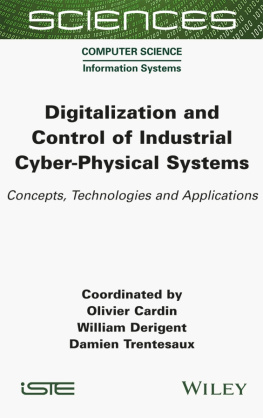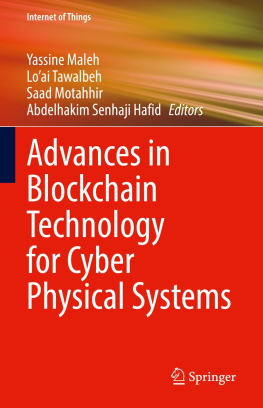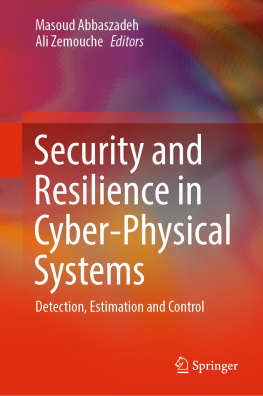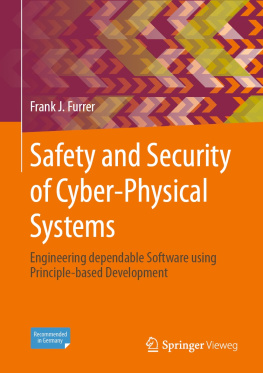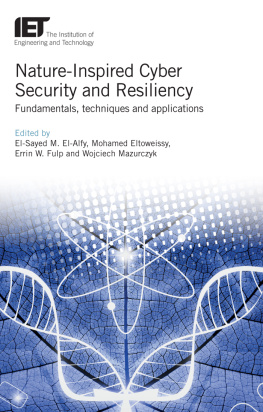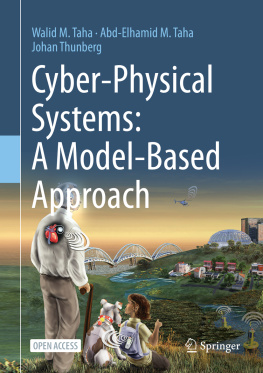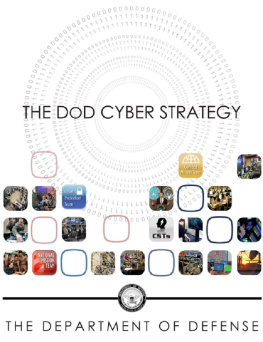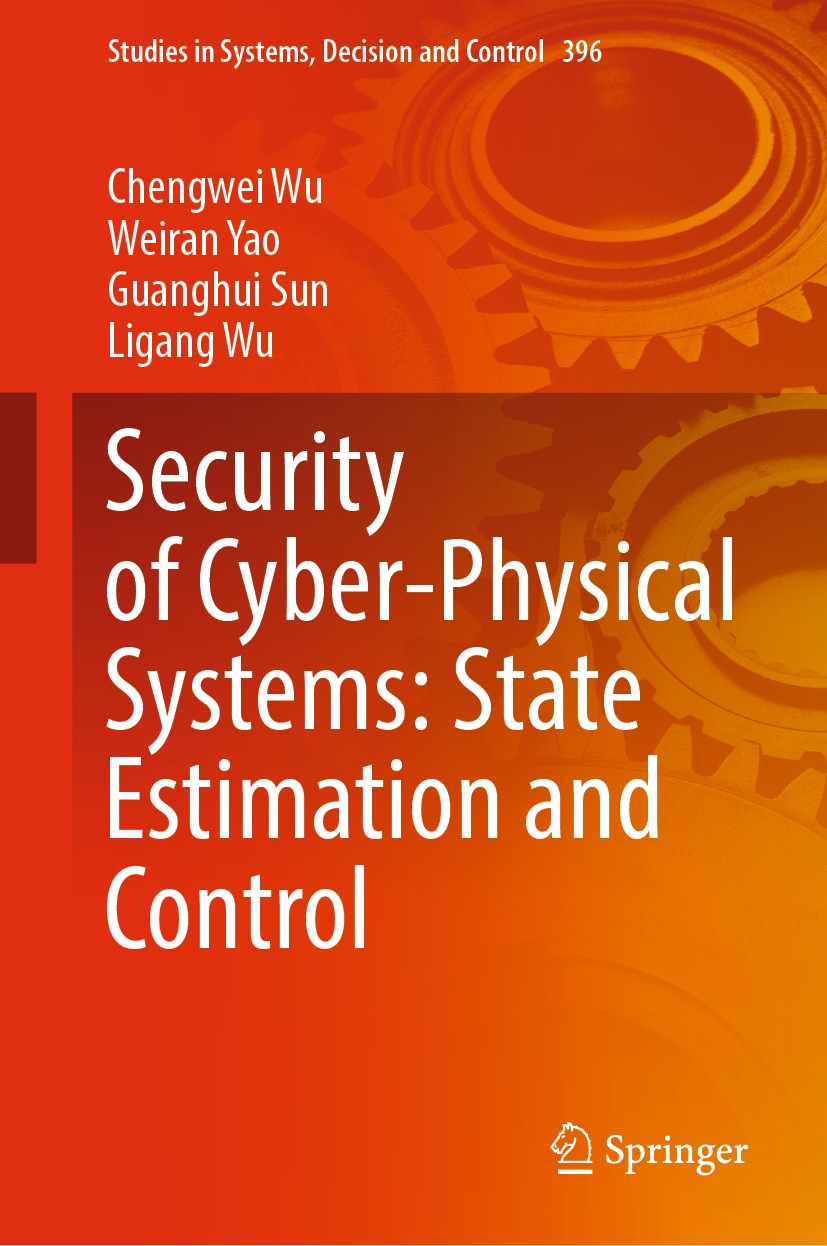Volume 396
Studies in Systems, Decision and Control
Series Editor
Janusz Kacprzyk
Systems Research Institute, Polish Academy of Sciences, Warsaw, Poland
The series Studies in Systems, Decision and Control (SSDC) covers both new developments and advances, as well as the state of the art, in the various areas of broadly perceived systems, decision making and controlquickly, up to date and with a high quality. The intent is to cover the theory, applications, and perspectives on the state of the art and future developments relevant to systems, decision making, control, complex processes and related areas, as embedded in the fields of engineering, computer science, physics, economics, social and life sciences, as well as the paradigms and methodologies behind them. The series contains monographs, textbooks, lecture notes and edited volumes in systems, decision making and control spanning the areas of Cyber-Physical Systems, Autonomous Systems, Sensor Networks, Control Systems, Energy Systems, Automotive Systems, Biological Systems, Vehicular Networking and Connected Vehicles, Aerospace Systems, Automation, Manufacturing, Smart Grids, Nonlinear Systems, Power Systems, Robotics, Social Systems, Economic Systems and other. Of particular value to both the contributors and the readership are the short publication timeframe and the world-wide distribution and exposure which enable both a wide and rapid dissemination of research output.
Indexed by SCOPUS, DBLP, WTI Frankfurt eG, zbMATH, SCImago.
All books published in the series are submitted for consideration in Web of Science.
More information about this series at http://www.springer.com/series/13304
Chengwei Wu , Weiran Yao , Guanghui Sun and Ligang Wu
Security of Cyber-Physical Systems: State Estimation and Control
1st ed. 2022

Logo of the publisher
Chengwei Wu
Department of Control Science and Engineering, Harbin Institute of Technology, Harbin, China
Weiran Yao
Department of Control Science and Engineering, Harbin Institute of Technology, Harbin, China
Guanghui Sun
Department of Control Science and Engineering, Harbin Institute of Technology, Harbin, China
Ligang Wu
Department of Control Science and Engineering, Harbin Institute of Technology, Harbin, China
ISSN 2198-4182 e-ISSN 2198-4190
Studies in Systems, Decision and Control
ISBN 978-3-030-88349-2 e-ISBN 978-3-030-88350-8
https://doi.org/10.1007/978-3-030-88350-8
The Editor(s) (if applicable) and The Author(s), under exclusive license to Springer Nature Switzerland AG 2022
This work is subject to copyright. All rights are solely and exclusively licensed by the Publisher, whether the whole or part of the material is concerned, specifically the rights of translation, reprinting, reuse of illustrations, recitation, broadcasting, reproduction on microfilms or in any other physical way, and transmission or information storage and retrieval, electronic adaptation, computer software, or by similar or dissimilar methodology now known or hereafter developed.
The use of general descriptive names, registered names, trademarks, service marks, etc. in this publication does not imply, even in the absence of a specific statement, that such names are exempt from the relevant protective laws and regulations and therefore free for general use.
The publisher, the authors and the editors are safe to assume that the advice and information in this book are believed to be true and accurate at the date of publication. Neither the publisher nor the authors or the editors give a warranty, expressed or implied, with respect to the material contained herein or for any errors or omissions that may have been made. The publisher remains neutral with regard to jurisdictional claims in published maps and institutional affiliations.
This Springer imprint is published by the registered company Springer Nature Switzerland AG
The registered company address is: Gewerbestrasse 11, 6330 Cham, Switzerland
To My Family
C. Wu
To Yang Chen
W. Yao
To My Family
G. Sun
To My Family
L. Wu
Preface
The past decades have witnessed a great development of the control theory, the communication technology, the computer science, smart devices and so on, which make it possible to design CPSs. In CPSs, the cyber realm is in charge of gathering, processing, transmitting data and interacting with human, and the physical system is used to govern system dynamics. Such systems can integrate the cyber realm and the physical world into a unified frame, improving the degree of automation and intelligence of physical systems. CPSs can benefit many fields, for example, the transportation, the basic infrastructure, robotics, smart building, etc. Due to the integration of the open and shared cyber layer, CPSs are not closed anymore. CPSs are vulnerable to adversaries while they improve the performance of systems. Adversaries can invade into the cyber layer by using some illegal attacks, example of which are DoS attacks, false data injection attacks and replay attacks. By implementing these attacks, adversaries can realizing their illegal goals including gaining benefits, decreasing even destroying the performance of the system. The notorious case is Stuxnet, which destroys the Iran nuclear devices. Recently, attacks frequently occur around the world. It is an urgent but challenging task to secure CPSs. Although researchers have proposed many remarkable secure schemes from the computer and the communication protocol prospective, the performance of the physical system, which is fair important for CPSs is excluded. To solve such a problem, this monograph attends to give some novel secure schemes for CPSs from the automation control prospective.
The problems of secure control, estimation and optimal attack design for CPSs in the presence of malicious attacks are thoroughly investigated. Both DoS attacks and false data injection attacks are addressed. By introducing some techniques such as the game-theoretical approach, moving target defense, reinforcement learning and optimal control, several novel results are proposed. This monograph includes two parts. One focuses on the problems of secure estimation and control for CPSs under DoS attacks. The other is concerned with the problems of secure estimation and control for CPSs with false data injection attacks. Specifically, the main contents of the first part are as follows:
optimal DoS attack scheduling for CPSs under energy constraints,
active defense based resilient sliding mode control under DoS attacks,
learning tracking control for CPSs,
adaptive fuzzy control for nonlinear networked control systems,
reliable filter design for sensor networks in the IT2 fuzzy framework.
The main contents of the second part are as follows:
secure estimation for CPSs via sliding mode,
zero-sum game based optimal secure control under actuator attacks,



